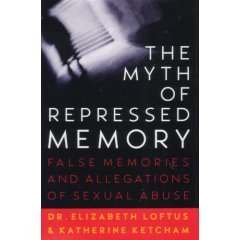Across the country, families are being torn apart and people sent to prison, all because of a trendy new psychological phenomenon: recovered memory. According to many clinical psychologists, when the mind is forced to endure a horrifying experience, it has the ability to bury the entire memory of it so deeply within the unconscious that it can only be recalled in the form of a flashback triggered by a sight, a smell, or a sound. Therapists and lawyers have created an industry based on treating and litigating the cases of people who suddenly claim to have "recovered" memories of everything from child abuse to murder.
Dr. Loftus reveals that despite decades of research, there is absolutely no controlled scientific support for the idea that memories of trauma are routinely banished into the unconscious and then reliably recovered years later.
"Astute, scientifically informed, and compassionate towards the movement's casualties."--"The New York Review of Books"
"The descriptions [of] the 'therapeutic' practices by which memories are recovered are a frightening indictment of at least some members of the burgeoning industry."--"The New York Times Book Review"
"[A] thoughtful, scholarly book . . . concerned with exposing the damage caused by, and the falsity of, the practice of recovered-memory therapy."--"The Washington Post Book World"
Astute, scientifically informed, and compassionate towards the movement's casualties. "The New York Review of Books"
The descriptions [of] the 'therapeutic' practices by which memories are recovered are a frightening indictment of at least some members of the burgeoning industry. "The New York Times Book Review"
[A] thoughtful, scholarly book . . . concerned with exposing the damage caused by, and the falsity of, the practice of recovered-memory therapy. "The Washington Post Book World""
"Astute, scientifically informed, and compassionate towards the movement's casualties." --The New York Review of Books
"The descriptions [of] the 'therapeutic' practices by which memories are recovered are a frightening indictment of at least some members of the burgeoning industry." --The New York Times Book Review
"[A] thoughtful, scholarly book . . . concerned with exposing the damage caused by, and the falsity of, the practice of recovered-memory therapy." --The Washington Post Book World
![]()
